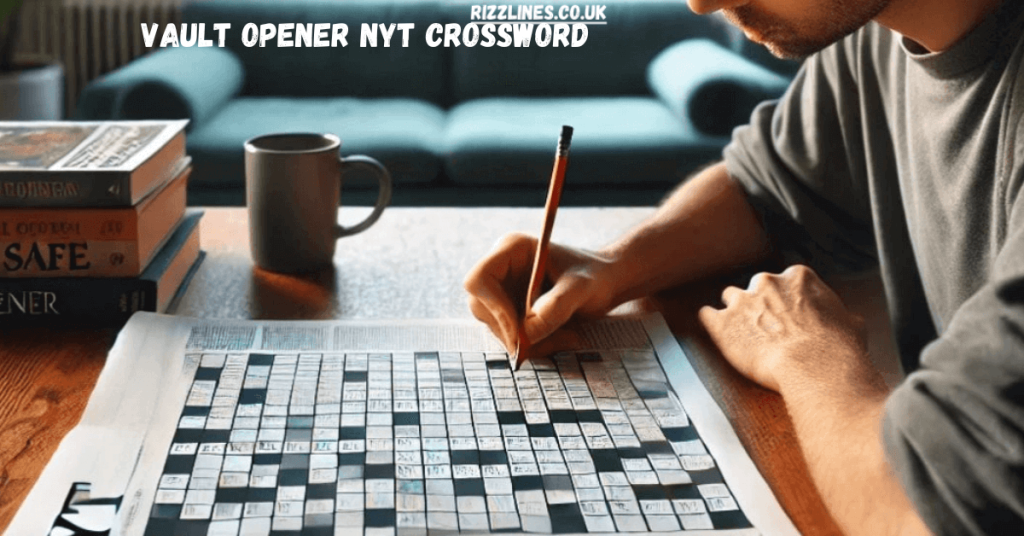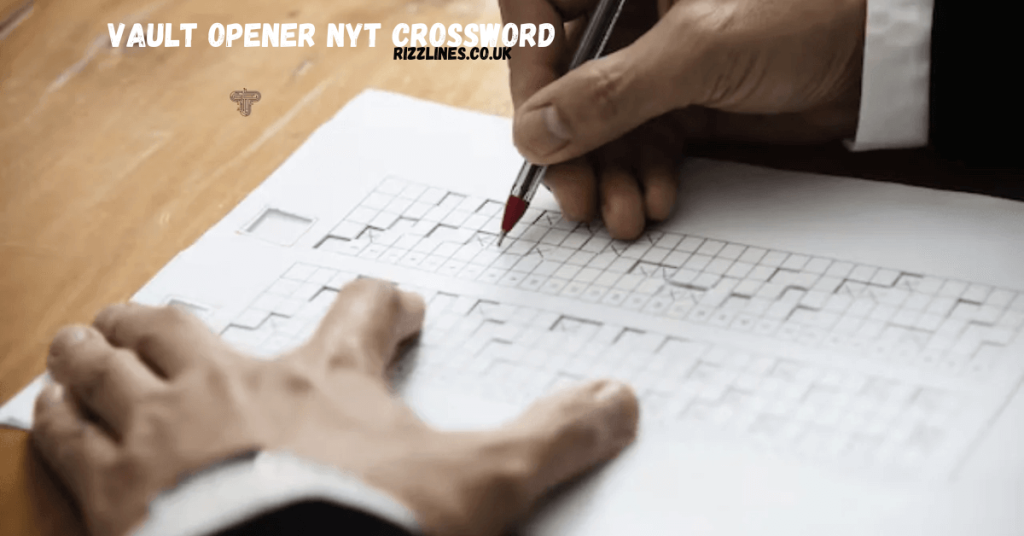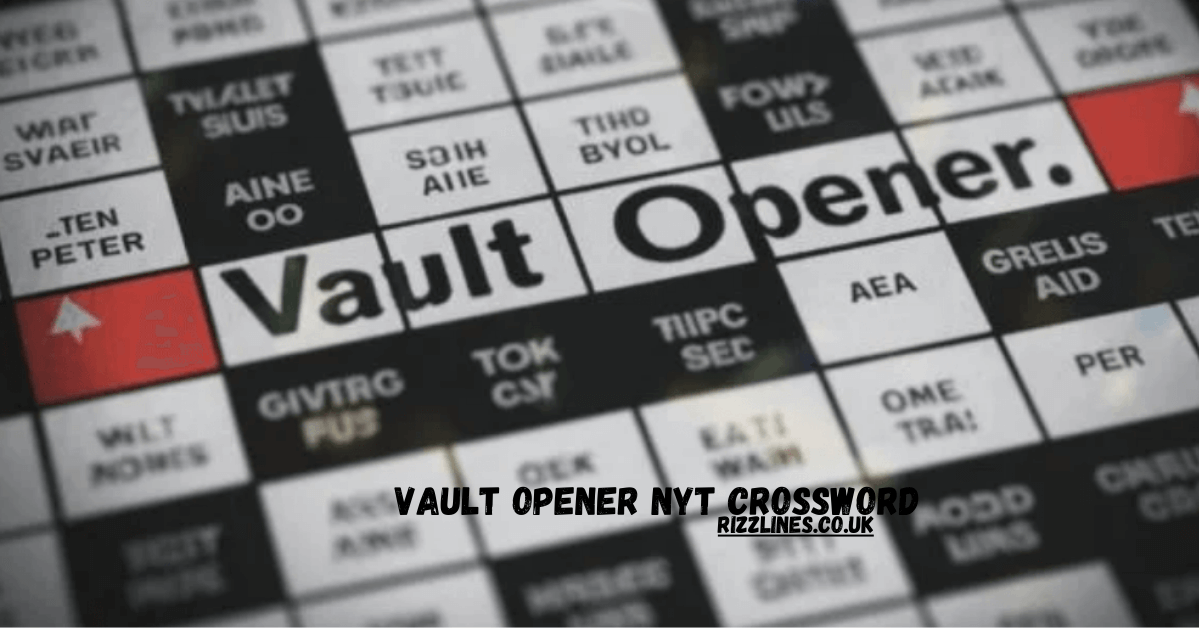Understanding the Term “Vault Opener”
The phrase “Vault Opener” may seem straightforward at first, but in the world of crossword puzzles, particularly in the New York Times (NYT) Crossword, it can take on a more intricate meaning. Crossword solvers know that not all clues are meant to be taken literally—many require wordplay, synonyms, or metaphorical interpretations.
A vault opener could refer to an object that physically opens a vault, such as a key or a combination code. However, in crossword puzzles, it could also symbolize something unexpected, like a thief, a locksmith, or even a heist. Understanding these multiple possibilities is essential for crossword enthusiasts looking to crack the puzzle efficiently.
The Role of “Vault Opener” in NYT Crosswords
NYT crosswords are known for their clever and often tricky clues. The term “Vault Opener” has appeared in various difficulty levels, from beginner-friendly Monday puzzles to the more challenging end-of-week ones.
A common strategy used by puzzle constructors is to craft clues that involve double meanings, synonyms, and cryptic hints. For example, “Vault Opener” might hint at a physical key but could also suggest a term related to finance, security, or even a gymnastic maneuver, adding an extra layer of complexity to the puzzle.
Common Associations with Vaults
A vault is typically associated with security and secrecy, making it a fascinating theme in crossword puzzles. Words linked to vaults include safety deposit, secure storage, and financial institutions, but they can also extend to unexpected realms.
For instance, a vault could refer to a high jump in gymnastics or a chamber in an ancient crypt. This broad range of meanings allows crossword constructors to craft clues that challenge even the most experienced solvers, requiring them to think outside the box.

Examples of Crossword Clues
Here are some ways “Vault Opener” could appear in an NYT crossword:
- “Bank security essential” → Answer: KEY
- “Burglar’s tool” → Answer: CROWBAR
- “Gymnast’s move” → Answer: HANDSPRING
- “Heist participant” → Answer: THIEF
- “Locksmith’s creation” → Answer: COMBINATION
Each of these answers aligns with a different interpretation of “Vault Opener,” illustrating how crossword clues can be both fun and deceptive.
The Fun of Crossword Solving
Solving crossword puzzles is more than just a pastime—it’s a brain teaser that enhances vocabulary, improves cognitive function, and fosters problem-solving skills. The crossword community thrives on the joy of cracking complex clues and discussing different solving strategies.
The NYT Crossword has built a legacy by combining wit, language skills, and cultural references. Enthusiasts enjoy the challenge of unlocking tricky clues, engaging in friendly competition, and sharing their progress on social media or forums.
Tips for Solving NYT Crosswords
Mastering NYT crosswords takes practice and strategic thinking. Here are essential puzzle-solving tips to enhance your skills:
Start with the Easy Clues
Always begin with the easiest clues, usually fill-in-the-blank answers or common phrases. These provide footholds that can help unravel more complex clues. Crossword puzzles are often designed with a progressive difficulty curve, so spotting straightforward answers early on helps build momentum.
Consider Word Length
Word length is a crucial factor in narrowing down possible answers. If a clue seems ambiguous, count the number of boxes—it might hint at whether you’re looking for a short synonym, an abbreviation, or a compound word. Additionally, recognizing prefixes and suffixes can provide clues about the correct answer.
Think Outside the Box
Many crossword clues involve wordplay, metaphors, and hidden meanings. A clue like “Vault Opener” could trick solvers into thinking of banks, when in reality, the answer might relate to gymnastics or acrobatics. By considering multiple interpretations, solvers improve their ability to unlock difficult clues.
Learn Crossword Lingo
NYT crosswords often include cryptic language, abbreviations, and cultural references. Becoming familiar with common crossword terms, such as “abbr.” (abbreviation), “alt.” (alternative spelling), or “var.” (variant spelling), will help you navigate puzzles more effectively. Understanding frequently used words, such as ERA, ORE, and ALOE, can also make solving puzzles much faster.

Practice Regularly
Like any skill, crossword solving improves with practice. Engaging with daily puzzles helps solvers recognize patterns, build confidence, and develop better strategies.
For an extra challenge, timing yourself and tracking progress over time can add a competitive edge to your puzzle-solving journey.
Engage with the Community
The crossword community is vast and welcoming. Platforms like Reddit, Twitter, and crossword-solving apps offer valuable discussions, hints, and explanations.
Joining a crossword-solving group or participating in crossword tournaments can enhance the experience, providing insights from expert solvers and puzzle constructors.
Conclusion
Cracking the Vault Opener NYT Crossword clue requires more than just a good vocabulary—it demands logic, creativity, and strategic thinking. By understanding different meanings, practicing regularly, and engaging with the crossword community, solvers can sharpen their skills and enjoy the thrill of solving even the trickiest puzzles.
With the right approach and a passion for wordplay, anyone can become an expert at unlocking crossword clues—one vault at a time!
(FAQs):
Q: What does “Vault Opener” usually mean in a crossword?
A: It can refer to a key, combination, crowbar, thief, or even a gymnastics move. The meaning depends on the context of the puzzle.
Q: Are there any strategies to solve tricky crossword clues?
A: Yes! Start with easy clues, consider word length, think about synonyms, and engage with the crossword community for insights.
Q: How difficult are NYT Crossword puzzles?
A: NYT crosswords start easy on Monday and gradually increase in difficulty throughout the week, with Saturday being the toughest and Sunday being the largest but more approachable.
Q: Where can I get help if I’m stuck on a crossword?
A: Online forums, crossword-solving apps, and communities like Reddit’s r/crossword offer excellent hints and discussions.
Q: Is solving crosswords good for your brain?
A: Absolutely! Crossword puzzles enhance memory, vocabulary, and cognitive flexibility, making them both fun and beneficial.
This article provides expert insights into the Vault Opener NYT Crossword, ensuring readers can confidently approach and enjoy solving crossword puzzles with enthusiasm and skill!
READ ALSO: Jordan Almonds
